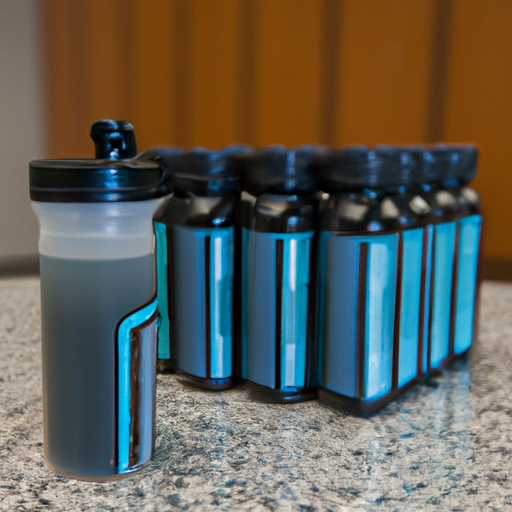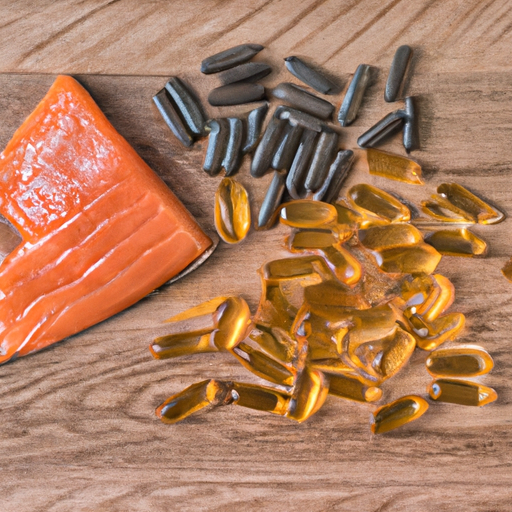
The Science of Electrolytes: Why They Matter for Fitness
Electrolytes might sound like a scientific jargon thrown around to confuse us, but they're anything but that. Imagine electrolytes as the superheroes of your body, with the noble task of helping your muscles contract, keeping you hydrated, and ensuring your post-workout glow doesn’t turn into a post-workout slump. In this article, we dive into why electrolytes are vital for fitness and how they significantly influence hydration and workout performance.
What Exactly are Electrolytes?
Simply put, electrolytes are minerals that carry an electric charge. In the fitness world, they are akin to the unseen gears working behind the scenes to boost performance. Key electrolytes include:
- Sodium: Helps maintain fluid balance and nerve function.
- Potassium: Crucial for muscle contractions and nerve signals.
- Calcium: Not just for teeth and bones, it's vital for muscle function.
- Magnesium: Plays a role in over 300 enzyme reactions, including energy production and muscle health.
These elements work together in your body’s orchestra, and even a slight imbalance can make your gym session feel less like a symphony and more like a discordant note.
Electrolytes and Hydration: A Balancing Act
Ever felt like a dehydrated raisin after a tough workout? It's likely a result of losing more electrolytes and fluids than your body can handle. While water is essential for survival, relying solely on H2O during and after intensive exercise might not suffice. Electrolytes are the secret recipe that turns this hydration equation right.
Here's how they do it:
- They maintain the fluid balance: Electrolytes draw water into your cells and help hold it there.
- Promote efficient nerve signaling: Proper hydration means your nerve signals work better, reducing muscle fatigue and cramps.
It's not just about drinking more water; it's about ensuring the right amount of electrolytes accompany it to optimize workout recovery and performance.
The Link Between Electrolytes and Workout Performance
You’re at the gym, ready to tackle the treadmill and, suddenly, your muscles cramp up like a car running out of gas. Why? Possibly because your electrolyte levels have dipped.
Electrolytes play a pivotal role in muscle contraction. Sodium, for example, facilitates the electrical impulses needed for muscles to contract. Magnesium and calcium work together for efficient muscle relaxation and contraction cycles. When levels are too low, muscles fail to respond effectively, leading to those notorious mid-workout cramps and fatigue.
Boost Your Workout with Electrolytes
Consider incorporating drinks with balanced electrolytes into your workout routine. Whether it's a specialized sports drink or coconut water, the goal is to replenish lost minerals effectively. Here are some tips:
- Analyze your sweat loss: Some people sweat salt, literally. Know your body to adjust your intake.
- Choose balanced drinks: Not all sports drinks are created equal. Look for ones with balanced sodium and potassium levels.
- Consider natural sources: Bananas, avocados, and leafy greens are excellent natural sources of potassium.
Electrolyte Myths Busted
In the world of fitness, myths abound. When it comes to electrolytes, confusion can be rife:
- Myth 1: "The more electrolytes, the better."
More isn’t always merrier. Excessive sodium can lead to high blood pressure. Stick to recommended dosages and eat a balanced diet. - Myth 2: "Electrolytes are just for marathon runners."
Not true, mere mortal! Anyone who exercises and loses fluids and electrolytes could benefit from replenishing them. Even casual exercisers need to maintain a balance.
Recognizing Electrolyte Imbalance
Knowing the symptoms of an imbalance can prevent serious setbacks:
Signs of deficiency include muscle cramps, dizziness, headache, dry mouth, and low energy levels. If you've ever felt like a wilting plant, drooping and devoid of energy mid-spin class, it might be your body whispering (or screaming) for electrolytes.
Tips for Maintaining Electrolyte Balance
Let’s avoid the drama of dehydration and fatigue by keeping those electrolytes in check. Here's how:
- Stay hydrated throughout the day, not just before workouts.
- Add electrolyte-rich foods to your diet: Think spinach, yogurt, nuts, and seeds.
- Monitor your intake and adjust according to activity level and climate.
Consider using a fitness tracker that offers hydration reminders. Some advanced models even estimate your sweat loss and suggest appropriate fluid intake. Willkommen to the future!
Conclusion: Electrolytes, Your Fitness Friends
Electrolytes might not flaunt superhero capes, but they certainly exhibit superhero powers. From enhancing water retention to optimizing nerve and muscle function, these charged minerals are integral to achieving and maintaining peak workout performance. Whether you're doing a light yoga session or gearing up for a marathon, pay attention to your electrolyte intake. Stay hydrated, balanced, and ready to tackle whatever fitness challenges come your way. Remember, keeping your body's chemistry in harmony is not just a goal; it's a promise to your well-being.
